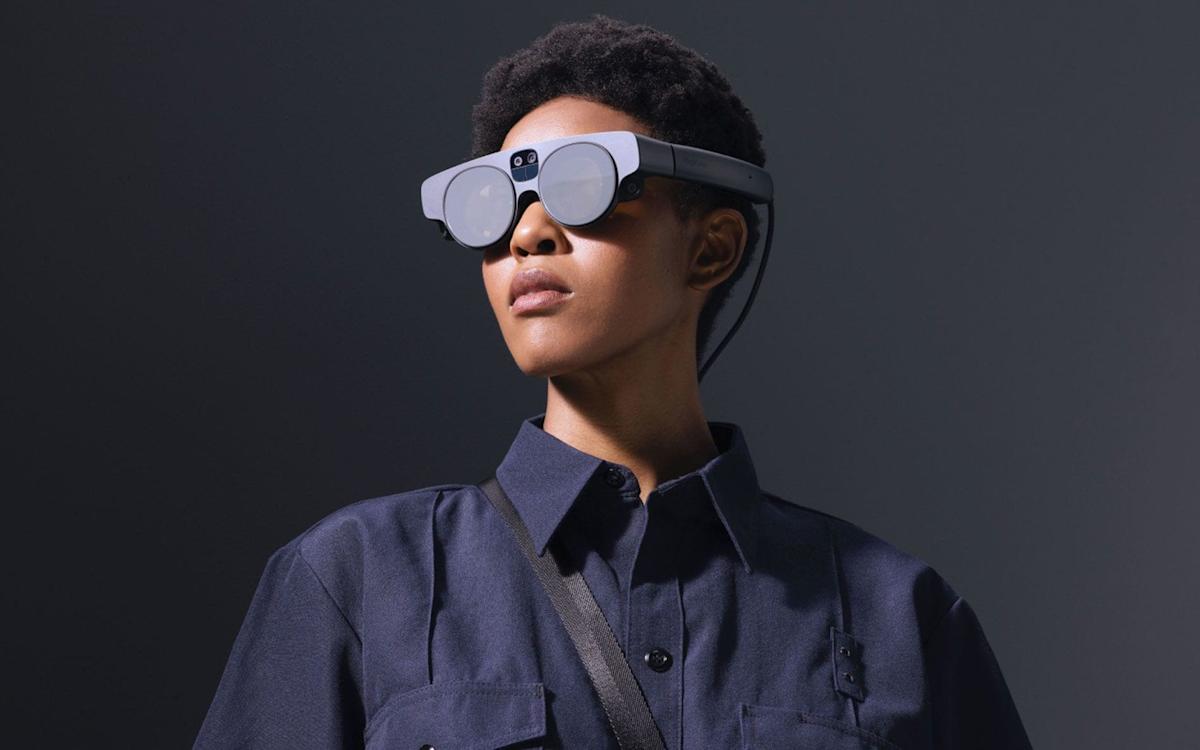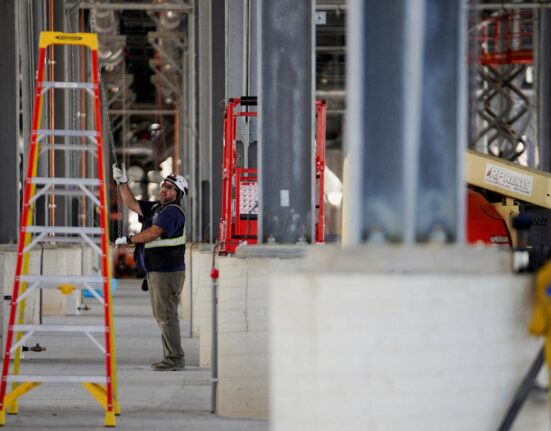Saudi Arabia has ploughed more than $1bn (£744m) into a technology firm developing virtual reality headsets, which has never turned a profit.
The Middle Eastern kingdom’s Public Investment Fund (PIF), its sovereign wealth firm, has injected $205m into Magic Leap in recent months, its latest cash infusion into the former tech darling.
Magic Leap, based in Florida, has raised north of $4bn in debt and equity funding and has never turned a profit with its “mixed reality”– or “XR” – goggles and hardware, which are intended to rival Apple’s Vision Pro and Meta’s Quest.
Founded in 2010 by Rony Abovitz, Magic Leap sparked consumer excitement when it first teased the augmented reality capabilities of its planned goggles, which would overlay virtual images on the real world.
However, its ultimate product launch in 2018 proved to be unsuccessful, and it later laid off more than 80pc of its staff. It has since switched to developing augmented reality tools and technology for businesses.
In 2022, it was quietly taken over by Saudi Arabia’s PIF in a deal first revealed by The Telegraph. Saudi investors have since been forced to pump more than $1bn into the business to keep it afloat.
The PIF has spent tens of billions of pounds on technology investments, including across gaming and entertainment, as Saudi Arabia seeks to diversify away from its traditional oil wealth under Crown Prince Mohammed bin Salman’s Vision 2030 strategy.
The $1tn investment fund recently backed a $55bn deal to buy out games-maker Electronic Arts and, over the summer, hosted the Esports World Cup for video gamers. It has spent billions on football clubs, recruiting top players for the domestic Saudi Pro League.
However, some of Saudi Arabia’s futuristic projects, such as its Neom metropolis and smart city The Line, have been beset by delays and overspending.
In accounts for a UK subsidiary, Magic Leap said it expected to receive further funding from “one of its investors” next month, as well as additional funding in 2026 that will keep the business “liquid through the going concern period”.
Despite its struggles, last year Magic Leap signed a deal with Google, which previously led a $542m investment round in the business more than a decade ago.
While few details have emerged about the deal, Google said it planned to work with Magic Leap thanks to its “leadership in optics and manufacturing” to bring a “wider range of immersive experiences to market”.
Google has launched a new version of its Android software intended for mixed reality headsets. Its UK-based DeepMind division has also been working on AI-powered glasses, dubbed Project Astra.
Saudi Arabia has ploughed more than $1bn (£744m) into a technology firm developing virtual reality headsets, which has never turned a profit.
The Middle Eastern kingdom’s Public Investment Fund (PIF), its sovereign wealth firm, has injected $205m into Magic Leap in recent months, its latest cash infusion into the former tech darling.
Magic Leap, based in Florida, has raised north of $4bn in debt and equity funding and has never turned a profit with its “mixed reality”– or “XR” – goggles and hardware, which are intended to rival Apple’s Vision Pro and Meta’s Quest.
Founded in 2010 by Rony Abovitz, Magic Leap sparked consumer excitement when it first teased the augmented reality capabilities of its planned goggles, which would overlay virtual images on the real world.
However, its ultimate product launch in 2018 proved to be unsuccessful, and it later laid off more than 80pc of its staff. It has since switched to developing augmented reality tools and technology for businesses.
In 2022, it was quietly taken over by Saudi Arabia’s PIF in a deal first revealed by The Telegraph. Saudi investors have since been forced to pump more than $1bn into the business to keep it afloat.
The PIF has spent tens of billions of pounds on technology investments, including across gaming and entertainment, as Saudi Arabia seeks to diversify away from its traditional oil wealth under Crown Prince Mohammed bin Salman’s Vision 2030 strategy.
The $1tn investment fund recently backed a $55bn deal to buy out games-maker Electronic Arts and, over the summer, hosted the Esports World Cup for video gamers. It has spent billions on football clubs, recruiting top players for the domestic Saudi Pro League.
However, some of Saudi Arabia’s futuristic projects, such as its Neom metropolis and smart city The Line, have been beset by delays and overspending.
In accounts for a UK subsidiary, Magic Leap said it expected to receive further funding from “one of its investors” next month, as well as additional funding in 2026 that will keep the business “liquid through the going concern period”.
Despite its struggles, last year Magic Leap signed a deal with Google, which previously led a $542m investment round in the business more than a decade ago.
While few details have emerged about the deal, Google said it planned to work with Magic Leap thanks to its “leadership in optics and manufacturing” to bring a “wider range of immersive experiences to market”.
Google has launched a new version of its Android software intended for mixed reality headsets. Its UK-based DeepMind division has also been working on AI-powered glasses, dubbed Project Astra.







Leave feedback about this